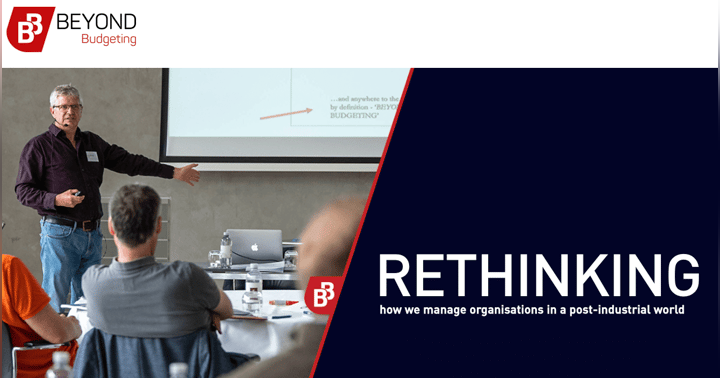
What can marketers learn from the private equity playbook?
Marketers should lead the way in creating value because marketing is the value creation engine in every business.
So, while others argue about the various merits of brand versus performance marketing, Unicorny’s editorial team looked at what lessons marketers can learn from the best value creators in the business world, the private equity houses.
To do that, we interviewed straight-talking, no-nonsense Peter Russell-Smith, veteran sales and marketing leader, B2B SaaS PE-backed CEO and now management consultant.
Peter is very well known to out production team and the marketing group that sits behind it (Selbey Anderson). He has been a coach, mentor and adviser to many of our senior leaders over the last few years. Listen to this episode and you’ll seen see why.
Why should marketers look at the private equity houses for inspiration?
It’s worth doing a little bit of your own research to see quite how quickly and successfully the private equity houses have grown since the mid-1980s. Their success is literally staggering. PE houses take a little bit of a bashing in the popular press, with high profile failures characterising them as avaricious debt-mongers. The truth of how they operate and how successful they are seldom makes the press. But, if you’re in the business of value creation, it’s hard to ignore how they operate.
Let’s take a quick look at what success looks like for a PE house.
A PE house will generally seek three times return on their money within a three-to-five-year timeframe. They use debt to leverage their investment, which helps to gear their return, but these are still staggering value gains. Most businesses think of incremental value gains through organic growth.
Think about organic growth like this. Plant metaphorical seeds, water them and wait. In time, the harvest will flourish and you reap your reward. It’s slow return, but low risk.
Private equity doesn’t have the time it takes to plant and wait. Instead, they buy the nursery, buy the farm, buy the market, integrate them and then sell the lot. It’s certainly not slow and while the risk is probably higher than a ‘plant and wait strategy’ its weighted risk.
We’re talking about a totally different approach to creating and realising value. That’s why marketers need to look at how the private equity houses work and draw inspiration from their playbooks.
What are the main value creation levers used by private equity
In the interview, Peter told us about three main value creation leavers used in the private equity business. EBITDA, quality of revenues and playbooks.
Now, of course, there are many other value creation levers that private equity houses involve in their legendary 100-day plans and playbooks thereafter. But, this is a really good place for us to focus as a starting point.
You can hear about the last two in the podcast, but I want to comment on profit pursuit today.
EBITDA means a relentless focus on profitable and stable business. As marketers we need to be very clear that we’re segmenting and targeting our markets with profit not revenue in mind. It means we need to understand what the lifetime value our customers is, what their most compelling need is, what value our product or service brings to them and how to package and price our product or service to maximise profit.
Making EBITDA your ultimate measure of success simplifies many of the decisions you need to make. Now, you may argue that this is a little short term? We disagree. You can... in fact you MUST still incorporate brand marketing initiatives into your promotional mix. But, if you lose sight of EBITDA, pretend it doesn’t matter in the short-term, or think your loss-leaders will come good, you’re probably toast. Understand how your work affects and contributes to EBITDA.
How can a marketer apply the levers?
We’ve already commented on EBITDA. The things we’ve talked about, aren’t really anything more than good old-fashioned marketing strategy. Understand your market, price your product or service to it and you should be supporting a profitable business.
Quality of revenue is a really interesting discussion. We all know that it’s no good chasing any old customers, but how many of us genuinely scrutinise the pipelines we are creating with a value creation lens? Too many of us get caught up in short term revenue cycles without thinking about whether we are helping to build enterprise value.
In the interview, Peter talked about quality of revenue, based on whether the business is retained (contracted over a defined time period), and whether the terms of business associated with that contract allow for regular price rises et cetera. These things might be outside our remit as marketers, but we can still take a slant on revenue quality. We pick up this point in part two of this episode when Peter references Ansoff’s matrix and market penetration strategy. We add value to our businesses by avoiding accidental diversification into either other markets or new products or services. Doing more of one thing well in one market is much more valuable and profitable than doing lots of things. If you’re a global enterprise with tens of thousands of employees, you may be able to do lots of things. Most of us aren’t and most of us can’t.
Playbooks are the big lesson I took away from Peter’s interview and there’s plenty of scope for us all to learn from this approach. To many marketers’ minds, processes and procedures feel like the enemy of creativity. Perhaps they are, but you don’t need creativity all the time... you need to be creating value all the time, so a small shift in thinking is needed. Focus on what works, not what’s new. Novelty can help achieve cut through, but it’s consistency that pays. That means research, write, test and refine playbooks. Work out what works, then stick to it.
What else does PE do that marketers should learn from?
A fascinating part of our interview that we could have devoted a whole episode to was Peter’s approach to due diligence (DD) in mergers and acquisitions. I loved his observation that there’s nothing to stop you using a DD-style approach to learn about your customers and your competitors. By taking a much more analytical view of who your competitors are winning, why and what the pain points are, you can help inform your short and medium-term tactics.
Next week
Next week, in part two, we dig into some of these areas in a little bit more detail. If you enjoyed the show we’d be very grateful for a review or a recommendation to your friends and colleagues?
| Broadcast date: | 12 September 2023 |
| Episode name: | Private Equity Playbooks: A Marketer's Guide (Part 1) |
| Guest: | Peter Russell-Smith |
About Peter Russell-Smith
Peter has decades experience in the global technology sector. He started out implementing process control systems engineer, progressed through various senior sales roles to eventually running P&L's for Private Equity investors in Asia, US and UK ranging in size from £25M-£400m.
With a strong belief that sales fixes a multitude of problems Peter leads Big Business Agency focusing on Sales growth and expansion for its clients.
A passionate catch and release fly fisherman Peter also enjoys trying to cook and swimming.


